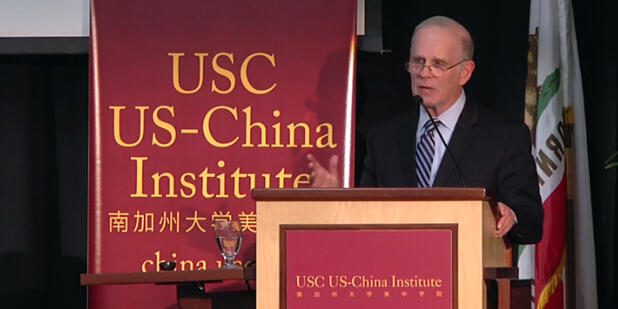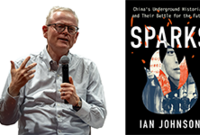About the Speaker
Terry Lautz is a visiting professor at Syracuse University. For many years he served as vice president of the Luce Foundation. He was a public policy scholar at the Woodrow Wilson Center in 2010. His publications include book chapters and journal articles on various aspects of Sino-American cultural and educational relations. He is completing a book about John Birch, an American in China who became the namesake of an anti-communist organization in the U.S.
This video is also available on the USCI YouTube Channel.
This video is available in High Definition on the USCI YouTube Channel and
on the USCI iTunes U Page in video and audio only forms.
Through Tinted Lenses? How Chinese and Americans See Each Other
What do Americans and Chinese "know" about each other and how do they know it? What images do they have of each other's society and state? Where do these images come from? Why do some endure and others change? How do images vary with age and other factors? How do these perceptions affect the decisions and actions of governments, businesses, civic groups, and individuals?
On November 1-2, 2013, leading academics gathered with pollsters, journalists, diplomats, and entertainment industry practitioners to explore these questions and questions and others at a conference hosted by the USC U.S.-China Institute.
Polls suggest that a slight majority of Americans believe that the values of Chinese and Americans are so different that cooperation to address international problems is impossible. Most Chinese feel the U.S. is working to constrain China's continued rise. Americans and Chinese have increasingly negative impressions of each other's countries. Yet, we are visiting each other's countries more than ever before, becoming ever more intertwined, and are working cooperatively in many different ways to address pressing social, economic, and environmental issues. At the conference we examined how these exchanges affect perceptions along with the even more powerful role played by new and old media, popular entertainment, and political discourse.




